Power Up Your Kids: The Ultimate Nutrition Guide for Growing Bodies
Power up your child's growth, brainpower, and immunity! Our guide breaks down the 10 most important nutrients for kids and delivers easy, practical tips to ensure your growing champion gets the fuel they need to thrive.
Jess
6/26/20254 min read


Watching your child grow is one of life's greatest joys. Have you ever wondered what fuels their incredible development? Just like a high-performance vehicle needs premium fuel, your child requires balanced nutrition to support every step of their growth journey.
Here are the top 10 essential nutrients every growing child needs:
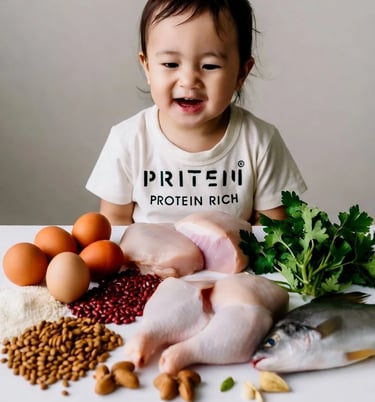

1. Protein: The Master Builder
Protein is the fundamental building block for almost everything in your child's body. It builds and repairs muscles, organs, and tissues, creates essential hormones and enzymes, and supports a healthy immune system. It’s crucial for growth spurts!
Find it in: Lean meats, poultry, fish, eggs, dairy products (milk, yogurt, cheese), beans, lentils, tofu, and nuts/nut butter.
2. Calcium: The Bone Fortifier
Childhood is the prime time for building a dense, strong skeleton that will last a lifetime. Calcium is the primary mineral responsible for building strong bones and teeth. Getting enough now is an investment in their future health.
Find it in: Milk, yoghurt, cheese, fortified plant-based milks, leafy greens like kale and broccoli, and calcium-set tofu.
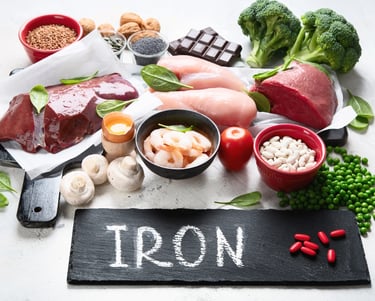

3. Iron: The Oxygen Mover
Iron is a critical part of hemoglobin, the protein in red blood cells that carries oxygen from the lungs to the rest of the body. Without enough iron, your child can become fatigued, pale, and have trouble concentrating.
Find it in: Red meat, poultry, and fish, beans, lentils, spinach, and iron-fortified cereals.
*Pro Tip: Pair these with a source of Vitamin C (like oranges or bell peppers) to boost absorption.
4. Vitamin D: The Calcium Helper
Vitamin D is the trusty sidekick to Calcium! Without adequate Vitamin D, the body can’t effectively absorb the calcium they're consuming. It’s essential for bone health and immune function.
Find it in: Fatty fish (salmon, tuna), egg yolks, and fortified foods like milk and cereal. The body also makes it from sunlight, but dietary sources are often important.
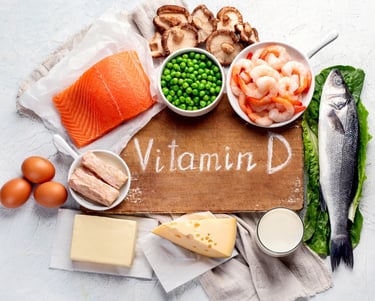

5. Omega-3 Fatty Acids: The Brain Booster
The brain is about 60% fat, and Omega-3s (especially DHA) are the superstar fats for brain development and cognitive function. They support memory, focus, and learning, and also play a role in reducing inflammation.
Find it in: Fatty fish (salmon, mackerel, sardines), walnuts, chia seeds, flaxseeds, and omega-3 fortified eggs.
6. Vitamin A: The Vision Protector
Essential for good vision, especially low-light vision, Vitamin A also supports healthy skin and a robust immune system to fight off infections.
Find it in: Two main forms:
Retinol (from animals): Eggs, dairy, and liver.
Beta-Carotene (converts to Vitamin A in the body): Orange and yellow vegetables like carrots, sweet potatoes, and bell peppers, as well as dark leafy greens.
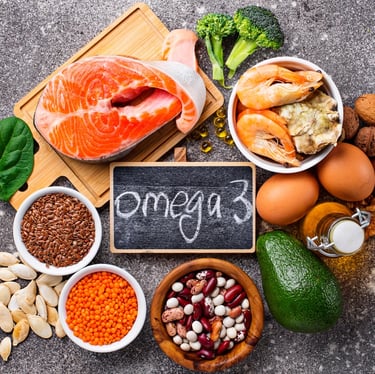

7. Zinc: The Immunity Igniter
Zinc is a mineral that works behind the scenes to power a multitude of functions. It’s vital for a strong immune system, wound healing, and proper growth. A zinc deficiency can lead to a higher susceptibility to illness.
Find it in: Lean red meat, poultry, seafood, beans, nuts, whole grains, and dairy products.
8. Vitamins B: The Energy Converters
The family of B vitamins (like B6, B12, and Folate) are essential for converting the food your child eats into usable energy. They are also crucial for a healthy nervous system and for producing red blood cells.
Find it in: Whole grains, eggs, dairy, lean meats, poultry, fish, leafy green vegetables, and beans.
9. Vitamin C: The Mighty Defender
Famous for its immune-boosting properties, Vitamin C is also a powerful antioxidant that protects cells from damage. It’s also necessary for the production of collagen (for healthy skin and joints) and helps the body absorb iron.
Find it in: Citrus fruits, strawberries, kiwi, bell peppers, broccoli, and tomatoes.
10. Fiber: The Digestive Regulator
While not a vitamin or mineral, fiber is a non-negotiable for health. It promotes healthy digestion, prevents constipation, and helps your child feel full and satisfied, stabilizing their energy levels.
Find it in: Fruits, vegetables, whole grains (oats, brown rice, quinoa), beans, nuts, and seeds.
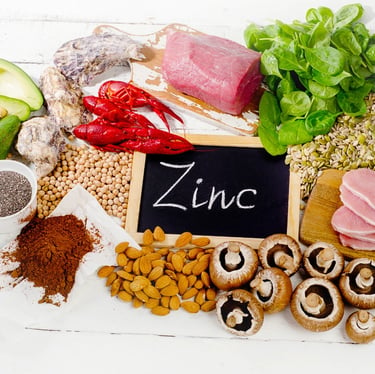

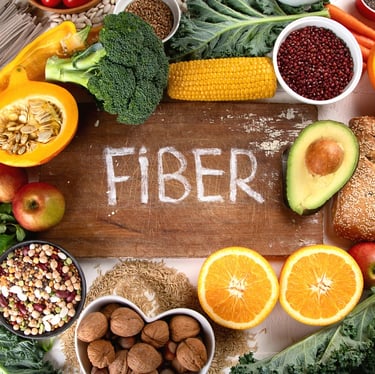

Putting It All Together: Tips for Busy Parents
You don’t need a degree in nutrition to get this right! The goal is variety, not perfection.
The Rainbow Plate: Encourage your child to "eat a rainbow." Different colored fruits and vegetables provide different vitamins and antioxidants.
Smart Swaps: Switch white bread for whole grain, offer yogurt with berries instead of sugary snacks, and add a handful of spinach to a fruit smoothie.
Lead by Example: Your children are more likely to try new, healthy foods if they see you enjoying them.
Don't Stress Over One Meal: Look at their nutrition over the course of a week, not a single day.
A Final Pep Talk:
Feeding your growing champion is one of the most important jobs you have. By focusing on these powerhouse nutrients and offering a wide variety of whole foods, you’re giving them the solid foundation they need to learn, play, and grow into the amazing person they are meant to be.
Explore
Discover innovative solutions in natural healthcare today.
Connect
Support
© 2025. All rights reserved.
